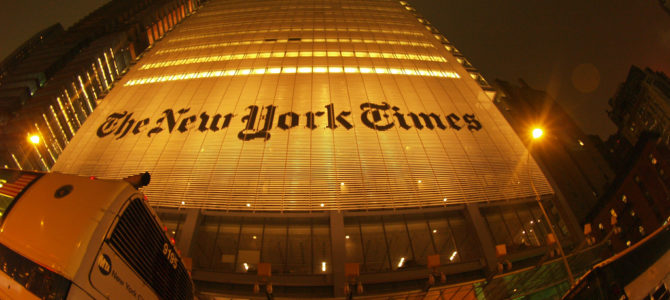In their front-page coverage of the story, mainstream media outlets gave readers no indication of the contents of a declassified memo released by the House Intelligence Committee on Friday.
The memo alleges the Federal Bureau of Investigation and Department of Justice abused their power to obtain permission from a secret Foreign Intelligence Surveillance Court to spy on the Trump campaign. It asserts the FBI used an unverified opposition research dossier paid for by the Hillary Clinton campaign and Democratic National Committee to obtain permission to spy, but never disclosed certain information to the court that would have undermined its case, including who paid for the document and indications its author was an unreliable source.
The New York Times, The Washington Post, CNN, and other mainstream outlets blocked these explosive allegations from their home pages Friday night, in some cases mischaracterizing the contents of the memo and downplaying its significance.
In its banner story, The Washington Post characterized the memo as “alleging missteps.” The memo alleges deliberate abuse of the system, not accidental missteps. In a nut graph next to that story, WaPo reiterates theories about what might happen to Deputy Attorney General Rod Rosenstein as a result of the memo, with no real indication as to why he is implicated. Rosenstein signed warrant requests to the FISA court on the basis of allegations inside the dossier.
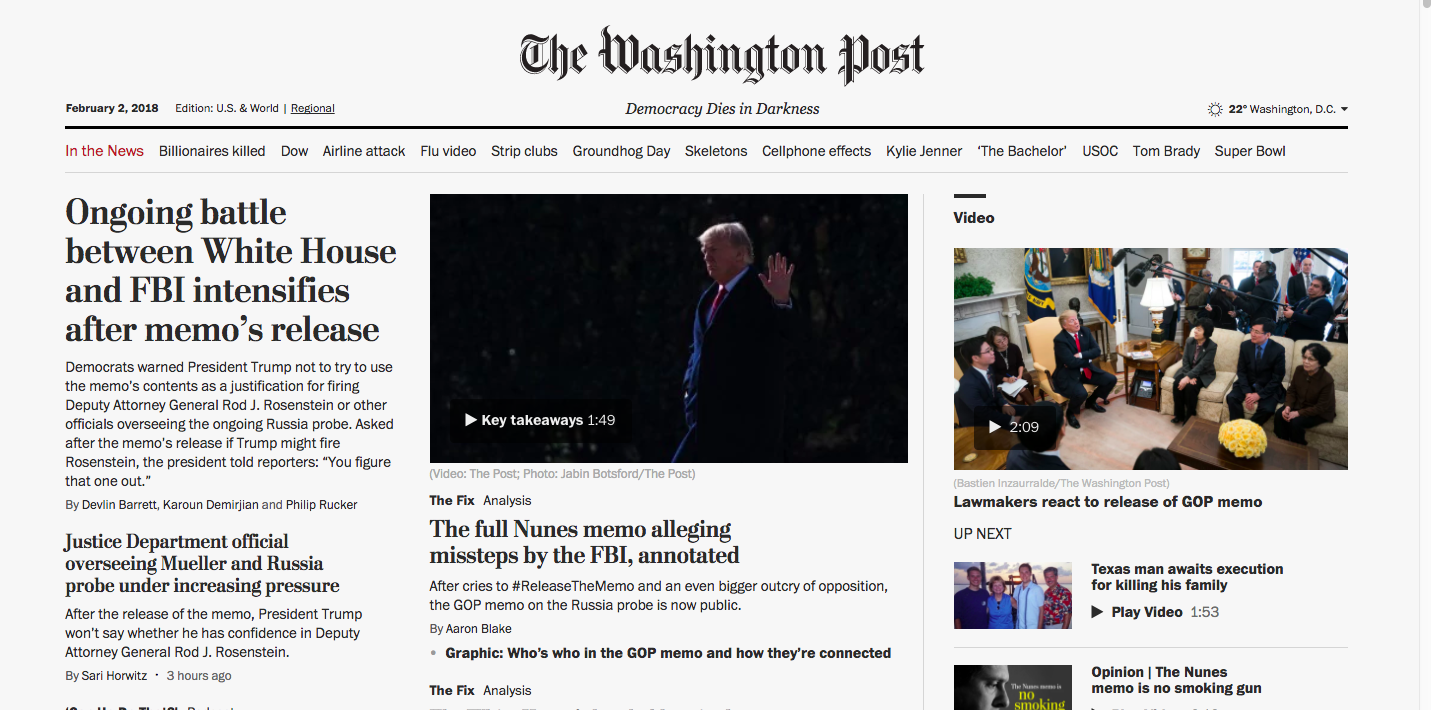
The New York Times banner coverage is a bit more informative, with the headline “GOP Releases Memo on Russian Inquiry,” followed by, “Alleges Abuses by FBI; Critics Call Claim Misleading.” But the key takeaway for readers from the memo itself seems deliberately opaque.
“The memo criticizes information used in an application for a warrant to wiretap Carter Page, a former Trump campaign adviser, but does not provide all the evidence used in the application,” the front page reads.
The memo does not criticize information, it criticizes how the FBI massaged and presented that information before the FISA court to obtain permission to spy on the Trump campaign. And it’s not really news that “all the evidence” was not provided in the memo. Republicans never promised all the evidence, only a brief public-use summary based on classified material unavailable to the American public. Even that summary, according to memo critics, endangers national security. Readers looking for a key takeaway are done a disservice here.
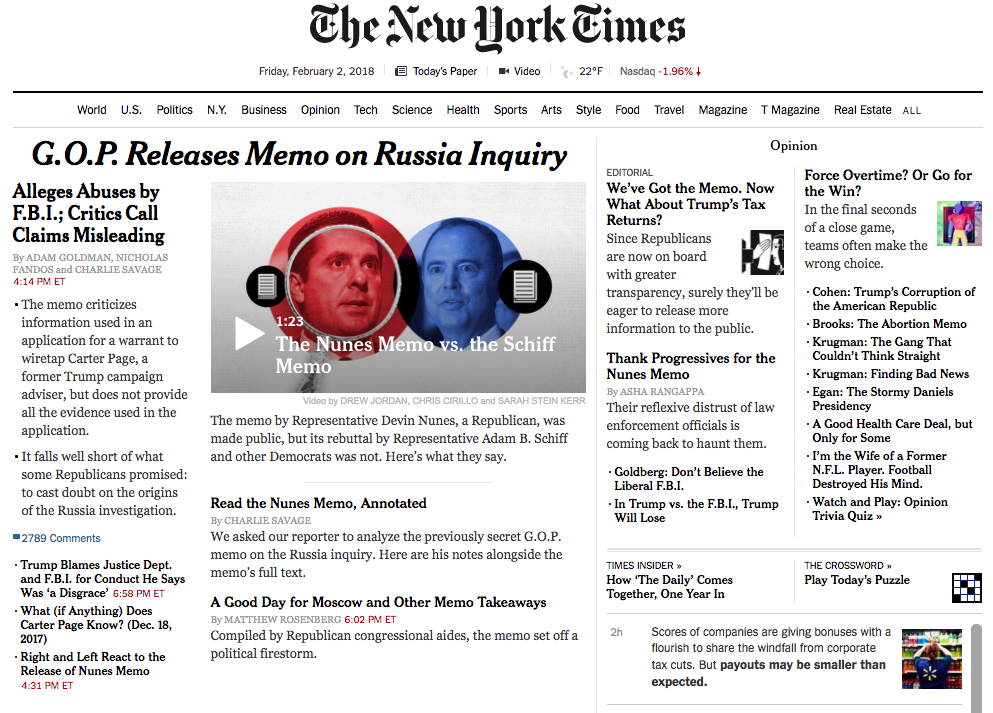
The Wall Street Journal put a much more informative summary on their front page. “A House Republican memo alleges abuses in how top law-enforcement officials sought the surveillance of a onetime Trump adviser, suggesting partisan motives in a document that the FBI said contained factual omissions and inaccuracies,” the paper reports.
CNN’s top headlines include, “Did the [House Intelligence Committee Chairman Devin] Nunes memo undermine its own core argument?” “Nunes says he didn’t read FISA applications” (he was briefed on the contents by another member who did), “James Comey Responds: That’s it?” And a big one referencing Sen. John McCain that reads, “Memo controversy is ‘doing Putin’s job,’ McCain says.”
The outlet’s banner coverage gives no indication of the contents of the memo or the nature of its allegations.
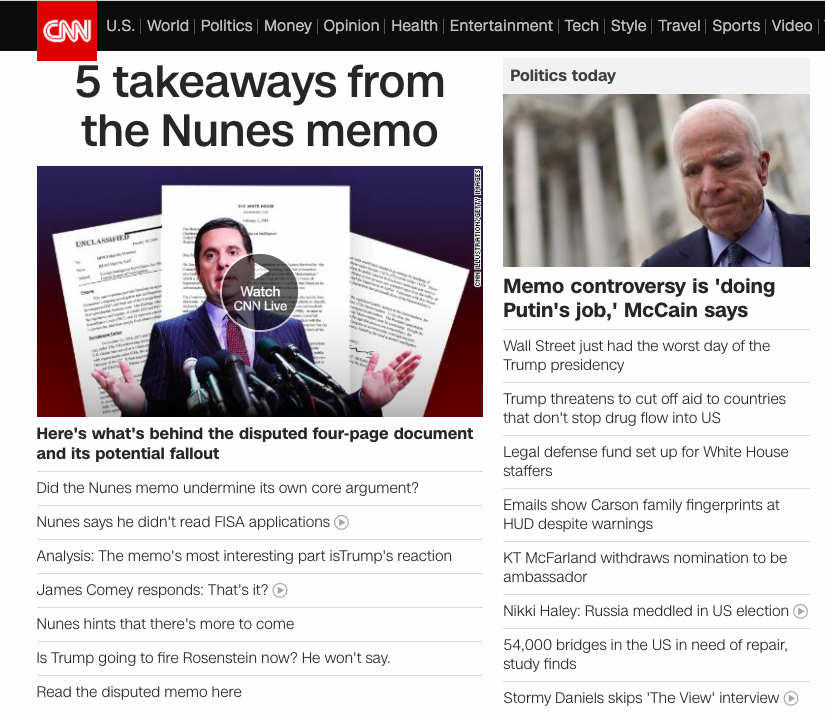
MSNBC’s treatment is similar. Zero references to content of the memo. Lots of headlines on criticism from Democrats and other stories pumping the Russia collusion narrative. One headline promises but doesn’t deliver the answer to a question readers of MSNBC could be forgiven for not knowing the answer to — “Why the Nunes memo is so controversial.”
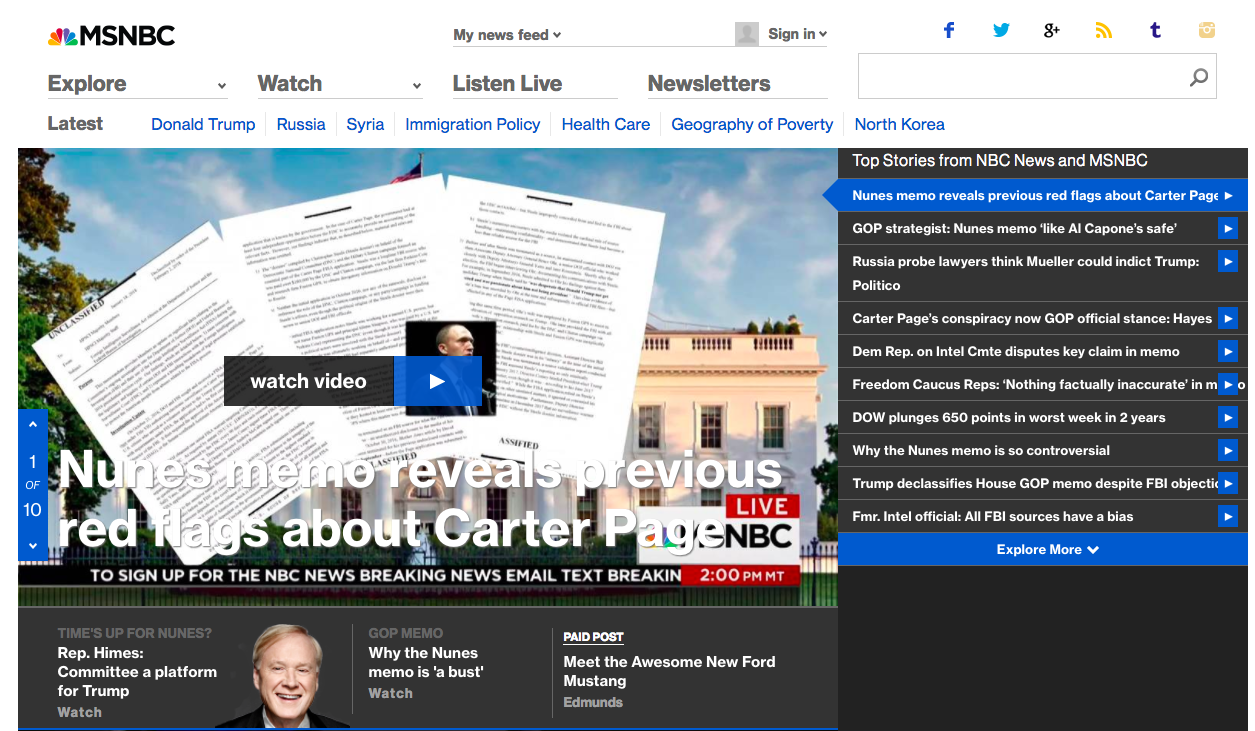
Politico opted to frame its banner headline about the way Democrats on the committee are responding to Republican allegations of abuse of power inside the FBI, DOJ, and FISA system. The banner story manages to avoid the contents of the memo, while pushing two Democrat talking points — the memo is a nothingburger and might be used to undermine the Russia collusion investigation.
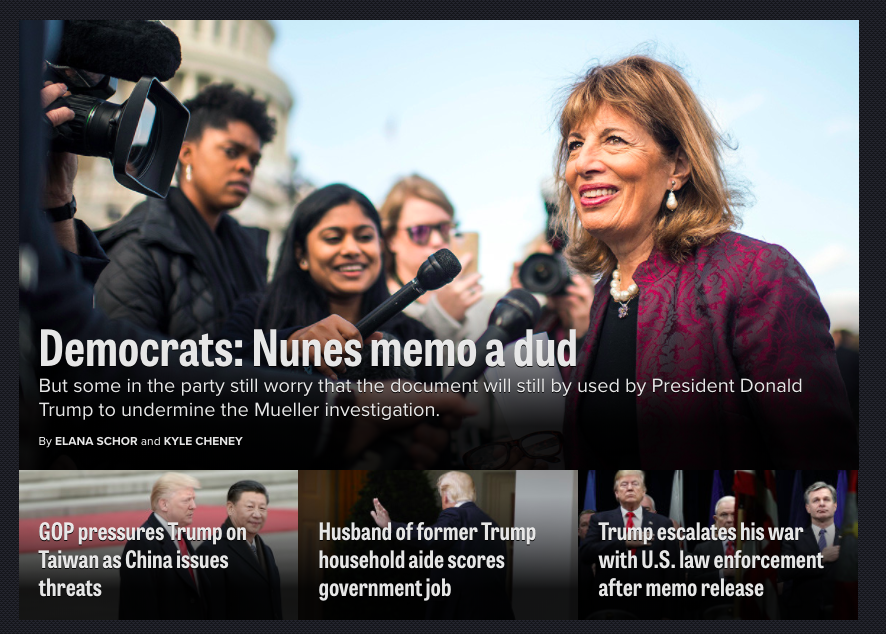
These editorial choices show what is by now a familiar willingness at mainstream outlets to pump narratives favorable to the Democratic Party and downplay any news that might be construed as favorable to President Trump, even if it means burying important elements of a massively important developing story their readers deserve to be informed about.
